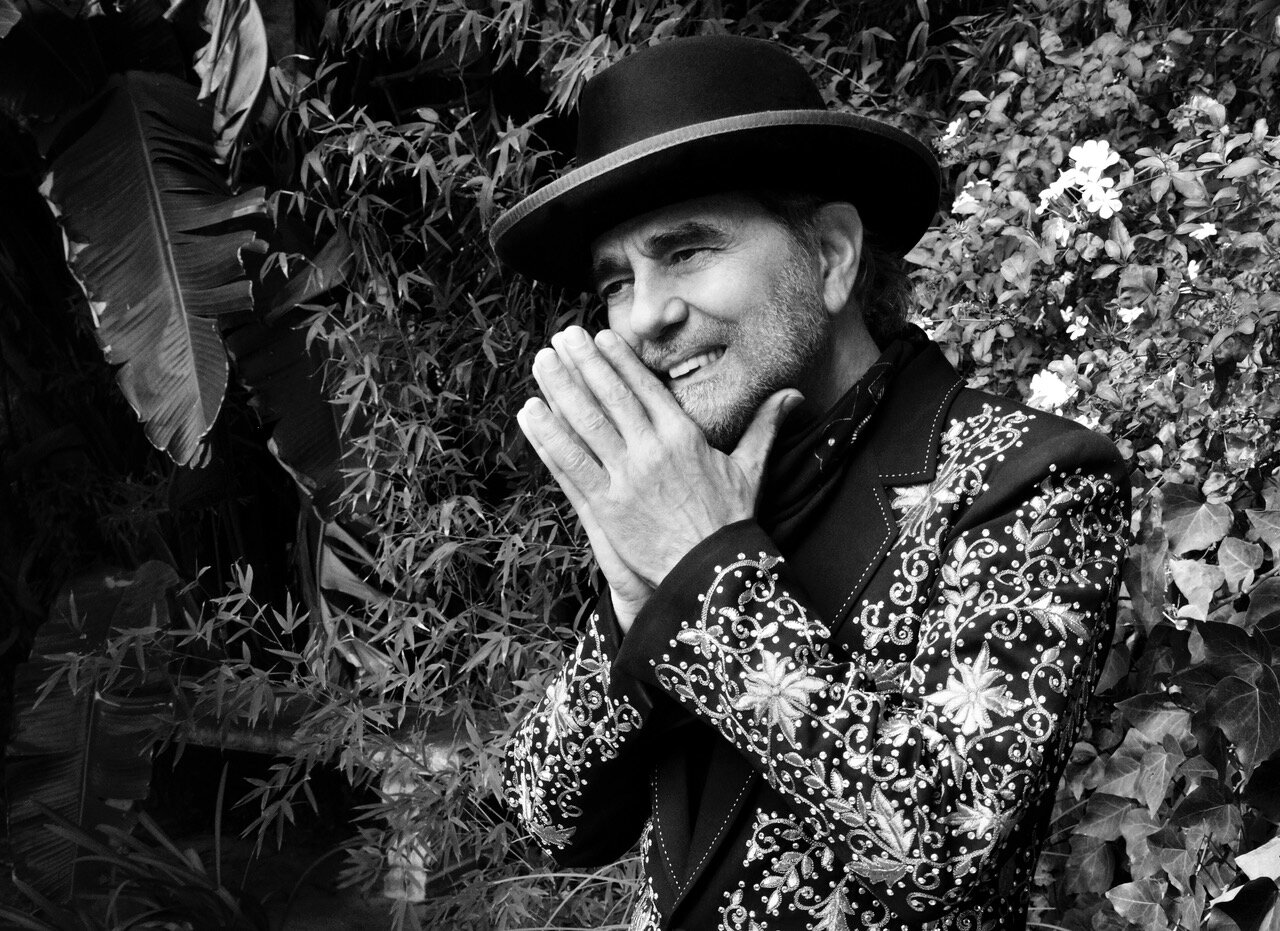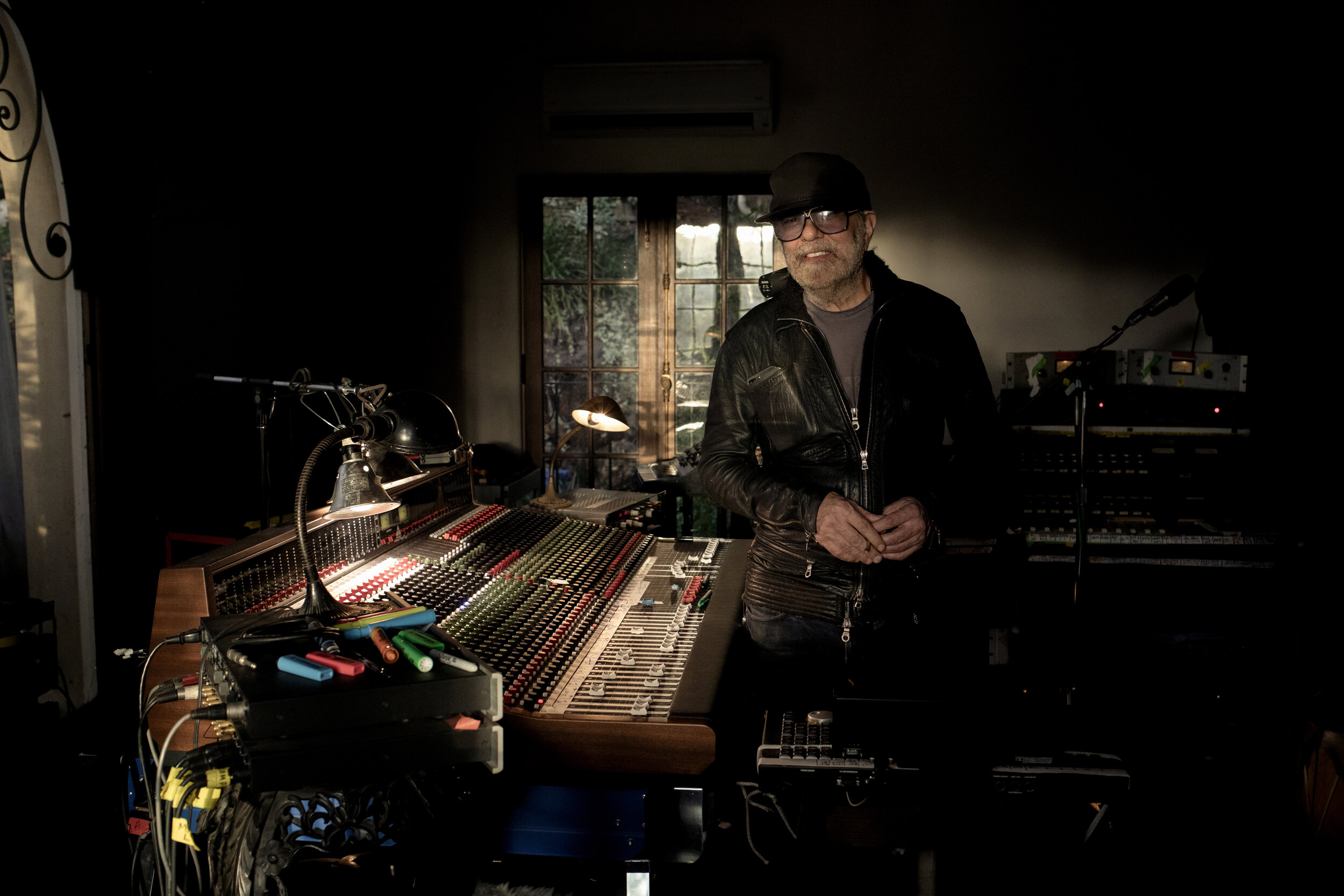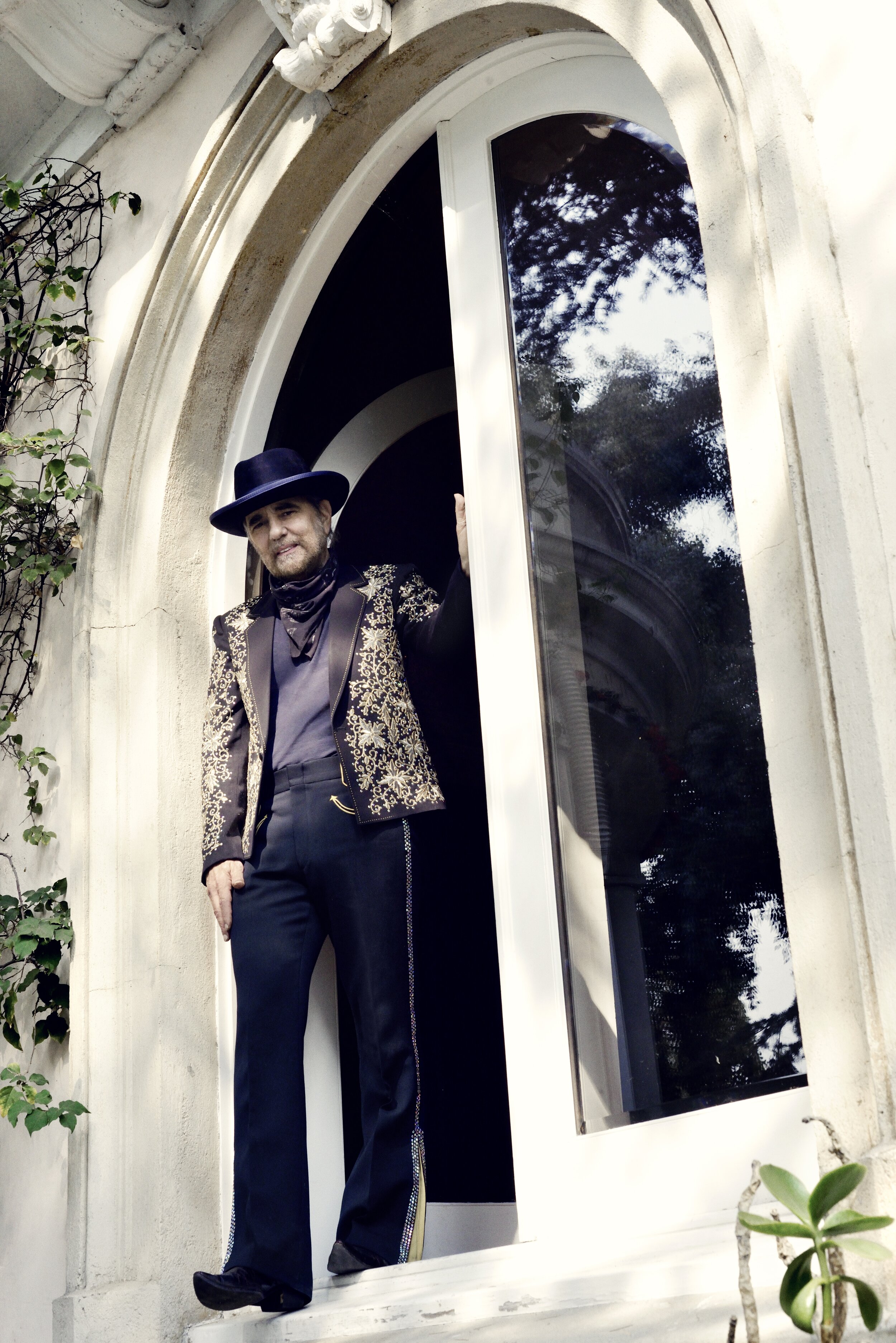Click Image to Download!
“I sense that I’m on the verge of a new chapter,” says Daniel Lanois.
Given the eleven-time GRAMMY-winner’s eclectic résumé, it’s not all that shocking of a revelation. Whether crafting ambient records with Brian Eno, making rock and roll history with U2 and Peter Gabriel, digging into American roots with Bob Dylan and Emmylou Harris, scoring Oscar-winning films and blockbuster video games, or composing his own solo music, Lanois has always seemed to reinvent himself every three or four years with a chameleon-like ease. Now, the legendary producer and songwriter is once again turning the page, moving back to his native Canada and teaming up with E1 to launch the brand new Maker Series out of his Toronto Buddhist temple-turned-studio. Encompassing a diverse range of audio and visual projects, both solo and collaborative, the series will showcase the full breadth of Lanois’ creativity and craftsmanship as he follows his muse across genres and mediums to create a body of work as singular and unpredictable as its maker.
“My life has never really been driven by the ‘make an album, hit the road’ cycle,” says Lanois. “I’m always just creating in the studio, and the Maker Series is a chance for me to share all these different things I’m working on under a single umbrella. The individual pieces are all over the map—songs, albums, films—but everything will bear my fingerprints, and the end result will be a collection where the artistry is in the vision and the production itself.”
First up in the Maker Series is Heavy Sun, the soulful, self-titled debut from Lanois and his invigorating new all-star band. Recorded in Los Angeles and Toronto, the album fuses classic gospel and modern electronics, mixing gritty, human textures with crisp, digital accents and lush, swirling atmospherics to create a sound that’s at once warmly familiar and boldly unexpected. The arrangements here are spacious and dreamy, anchored by rich, righteous organ topped with airy falsetto and mesmerizing four-part harmony, and the writing is buoyant and soulful to match, tapping into the shared uncertainty of the human condition to offer hope, comfort, and connection at a time when all three run in desperately short supply.
“We want to lift people’s spirits with this music,” says Lanois. “It’s so easy to feel isolated right now, but we want everyone to feel included in what we’re doing.”
That communal spirit is on full display here, with Lanois and his bandmates—guitarist/vocalist Rocco DeLuca, organist/vocalist Johnny Shepherd, and bassist/vocalist Jim Wilson—showcasing an undeniable chemistry and boundless appetite for sonic discovery that far surpasses the influence of any individual member.
“There’s a reason we love bands’ early albums,” says Lanois. “You can hear how hungry they are, how much it means to them. This group has that magical kind of ‘first band’ energy, that naïve innocence that comes from people trying to make something truly special together.”
While Lanois may be best known for his production work on era-defining albums like Joshua Tree, Wrecking Ball, and Time Out Of Mind, he actually grew up on organ records and gospel music, and he cut his teeth as a young man in the studio recording vocal quartets touring their way through Ontario. In the decades to come, Lanois would go on to become one of the most acclaimed studio gurus of the modern era (Rolling Stone declared that his “unmistakable fingerprints are all over an entire wing of the Rock and Roll Hall of Fame”), as well as a prolific solo artist (NPR hailed his “brilliant albums of heartfelt songs”), but his love of soul and gospel music never left.
“It was a big part of my education,” Lanois explains. “I’ve always had a respect for the structure of the instrumentation and the harmonies, and I saw so much potential in drawing from all of that wonderful music and pushing it into the future.”
For Lanois, who sang and played guitar in addition to producing the album, that meant taking full advantage of modern recording techniques, slicing and dicing live, improvised performances into discrete songs that could be fleshed out with experimental effects and sci-fi flourishes. Some tracks began life with Shepherd alone on the organ, taking the rest of the group to church the way he did for years at Zion Baptist in Shreveport, LA; others began with a melody or a simple groove played on a vintage beatbox. While Lanois dug deep into the production work, carving up raw material and extracting samples he could weave back into the arrangements, DeLuca (a revered solo artist in his own right) was often in the rear of the studio with the rest of the band, crafting lyrics around inspiring messages of community and resilience.
“Our goal was to be a force for good with these songs,” explains Lanois. “We wanted to remind people not to let the world steal their joy, to remind them that even during a global pandemic, it’s our responsibility to protect our spirits and find ways to keep on dancing, keep on singing, keep on teaching, keep on loving.”
That sense of defiant optimism lies at the heart of Heavy Sun, guiding the band’s each and every step on the road to deliverance. Album opener “Please Don’t Try” sets the stage, dipping its toes into the water with a spare organ and vocal performance meditating on the power of trust and fate. As the record unfolds, so does its palette of sounds and textures, and soon the songs are whirling in full, dazzling color. The hypnotic “Under The Heavy Sun” dissolves the boundaries between organic and electronic as it celebrates the joy of human connection, while the trippy “Power” seems to emanate from some alternate universe as it affirms the strength in unity and cooperation, and the ecstatic “Say You Will” embraces redemption over an infectiously funky drum machine and organ groove.
“The organ is such a fabulously musical instrument,” says Lanois, “and it was a luxury to have that as the main engine driving these songs. It covers so much ground that you really don’t need to add a lot, and I tried to stay loyal to that spirit and avoid cluttering the arrangements with too much else.”
Many of the album’s most arresting moments are, in fact, its simplest. The tender “Mother’s Eyes” is a bare bones, stripped-down plea for peace and understanding, while the gentle “Way Down,” captured with live vocals from all four bandmates, mixes hymnal and doo-wop influences as it insists on kindness and love in the face of hatred and pain, and the searing “Dance On” draws on the call-and-response of the African American spiritual tradition in its rallying cry for perseverance. Perhaps it’s the reggae-tinged “Tree of Tule,” though, that best embodies the record’s commitment to finding transcendence in the ordinary.
“I spent some time in a little village outside of Oaxaca, Mexico,” says Lanois, “and there’s a town nearby called Tule, which has a thousand year old tree. People from all over congregate underneath it to have a moment of meditation or prayer, which suggests to me that you don’t need to be in some ornate chapel with a gilded ceiling to find God. You can reach Him just as easily under the branches of a tree.
In the end, that sort of revelation is precisely what drives Heavy Sun. Lanois and his bandmates are here to draw us closer together, to spread a message of joy and love and connection bound by neither time nor space, which makes their music a particularly fitting start for the Maker Series. These are uncertain times, but we share in them together, each of our fates intertwined like voices in harmony. For a maker like Daniel Lanois, that’s what life is all about.











